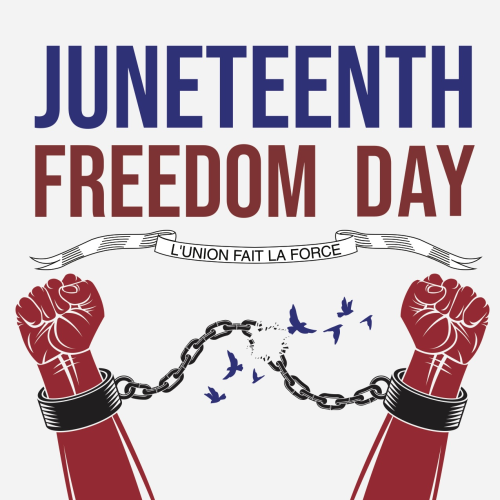“We never give up on our patients. We are proud of our mission, which is to serve the most vulnerable.”
Your donation can help Dr. Clermont and our entire staff care for more patients than ever before.


Today we celebrate Juneteenth, which honors the day in which enslaved Africans in Texas learned that they were free. This day—June 19th, 1865—marked the end of slavery in the US. It came more than two and a half years after President Abraham Lincoln issued the Emancipation Proclamation, which freed enslaved people in Confederate states. It would take another six months for the 13th Amendment to be ratified, abolishing slavery across the country.
The long, slow, and ongoing fight for freedom for black people in the US resonates deeply with Haiti’s own struggle for freedom. Haiti the only modern country founded by a slave revolution, and the second independent republic in the Americas. Both the US and Haiti have been indelibly shaped by the legacies of slavery and oppression. It is unbearably painful to still be dismantling these legacies today. But while that pain is great, so too is our resiliency and strength.
Juneteenth, like Haitian Independence Day, is a day to spend with the family and friends who make us feel loved and safe. Together, we celebrate the generations of black leaders who gave their skills, their labor, and their lives so that all black people can have the right to life, liberty, and the pursuit of happiness. And we acknowledge that today, centuries after freedom was ostensibly won, black and brown people still struggle for these basic freedoms in the US, in Haiti, and around the world.
For those of us who celebrate Juneteenth each year, we hope that today is a day of peace, restoration, and self-care.
And for those of us who have not typically celebrated Juneteenth, we hope that you will join us in celebrating the black artists, writers, athletes, philosophers, activists, and politicians who shaped not just US history and culture, but world history and culture. Learn with us the ways in which we can amplify black voices and save black lives. And work with us to dismantle racism in our lives, our workplaces, our communities, and our countries.
Your donation can help Dr. Clermont and our entire staff care for more patients than ever before.
